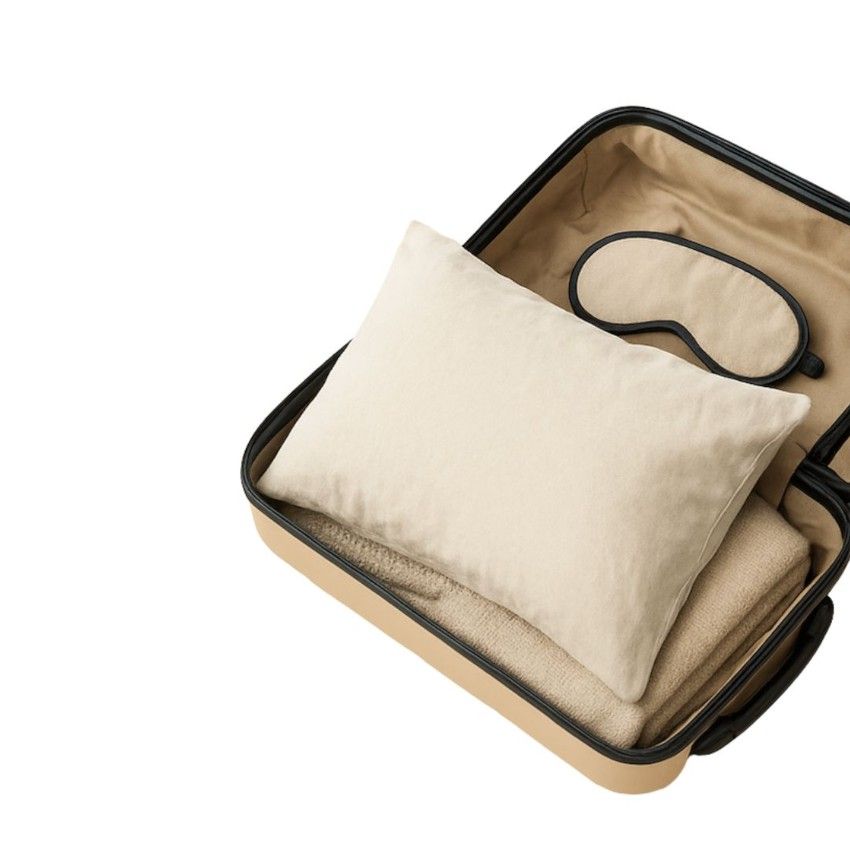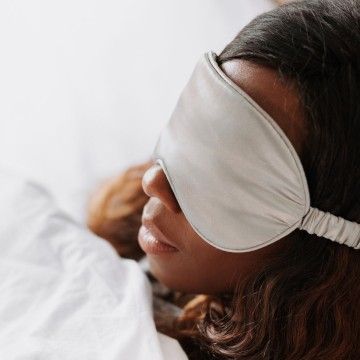
Travelling? Don’t lose sleep over it!
Travelling? Don’t lose sleep over it! Travelling can be exciting and inspiring whether it’s for business or leisure, but it’s not always restful. Between jet lag, unfamiliar beds, and noisy environments, even seasoned travellers can struggle to get a good night’s sleep away from home.
And poor sleep can make the days feel longer, your patience shorter, and your enjoyment lower.
The good news? With a little planning and a few tactical and practical habits, you can set yourself up for quality rest no matter where your adventures take you.
Read on for a few tactical and practical habits to introduce into your travel planning.
Keep a sleep routine (as much as possible)
Our bodies run on an internal clock called the circadian rhythm. It loves consistency. While it’s tempting to stay up late exploring or working, aim to go to bed and wake up at roughly the same time every day – even on the road.
If you’re travelling across time zones, consider starting to adjust your sleep schedule a couple of days before you leave. Go to bed and wake up 30–60 minutes earlier or later (depending on your destination) so the change feels less jarring when you arrive.

Bring comforts from home
The fastest way to make a strange bed feel like your own is to bring small, familiar items.
- Pillowcase: The scent and texture of a pillowcase you typically use at home can be surprisingly comforting.
- Eye mask: A must-have if your accommodation doesn’t have blackout curtains.
- Earplugs or noise-cancelling headphones: Perfect for blocking street noise, hallway chatter, or early-morning roosters.
Control the light around you
Light is one of the strongest signals to your body that it’s time to be awake. In the evenings, keep lights dim and avoid bright screens for at least an hour before bed. If you can’t block outside light completely, a comfortable sleep mask can make all the difference.
In the morning, step outside as soon as you can – natural daylight helps your body clock reset quickly, making it easier to adapt to a new time zone.
Keep cool and comfortable
A cooler room – around 18-20°C – is ideal for most people to sleep soundly. Unfortunately, you can’t always control the climate in hotels or paid accommodation. If the room’s too warm:
- Use a fan (or request one if it’s not provided).
- Keep curtains closed during the day to block heat.
Be mindful of your caffeine and alcohol intake
Coffee and energy drinks can linger in your system for 6 – 8 hours, making it harder to wind down at night – a solution might be to try and avoid caffeine late in the day.
Alcohol may help you nod off initially, but it can often disrupt the deeper stages of sleep due to sugar spikes in your system – potentially leaving you feeling exhausted the next day. Who wants that when travelling? Stay hydrated by drinking lots of water.
Have a wind-down ritual
Travel days can be busy, overstimulating, and unpredictable. Having a simple pre-sleep routine gives your body a “time to rest” signal. It could be as quick as:
- Nightly skincare routine
- Doing a few minutes of stretching
- Reading a book or listening to calming music

Be smart about jet lag
If you’re flying across multiple time zones, jet lag can be unavoidable – but you can try to minimise it. Here are some tactical tips.
- Before your trip, shift your sleep schedule gradually.
- When on the flight, think about the time zone you are heading to and plan your flight activities – watching a movie, reading a book, eating meals and getting some sleep – to fit in with the time zone of your destination.
- While away, use short naps wisely – 20-30 minutes in the afternoon can help you recharge without making nighttime sleep harder or missing out on too much. Set an alarm!
Choose accommodation with sleep in mind
If you have the choice, pick a place that’s likely to be quiet and comfortable. Rooms away from lifts, stairwells, or busy streets can make a big difference. Reviews often mention noise levels—so it’s worth checking before you book.
To wrap up
Sleep might not be the first thing you think about when planning a trip, but it can make or break your experience.
A well-rested traveller typically enjoys more, remembers more, and can potentially handle challenges better.
Happy travels!
